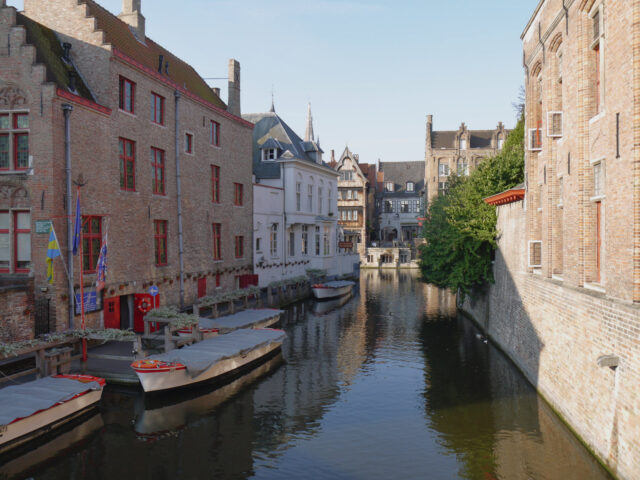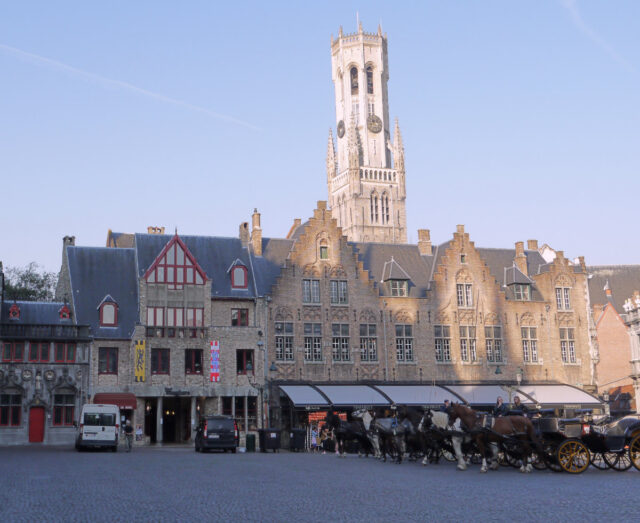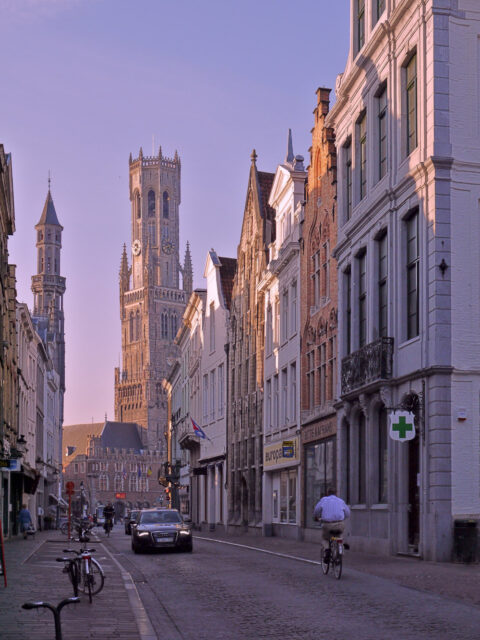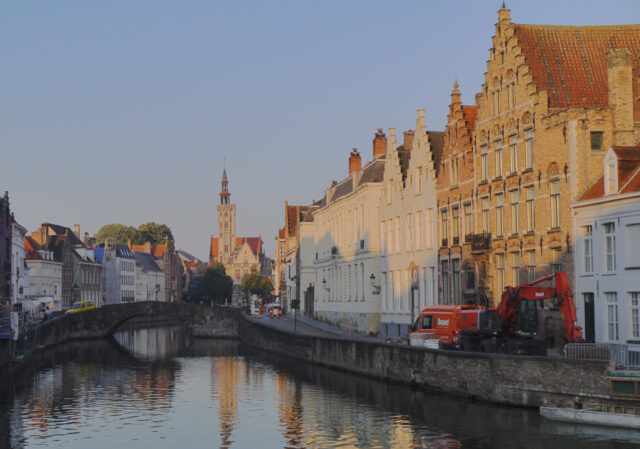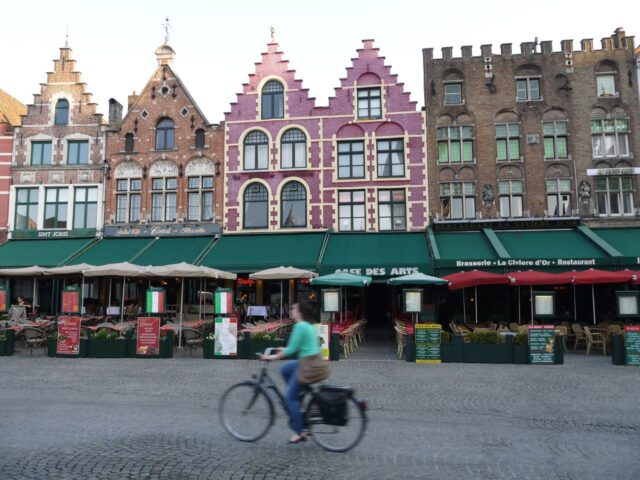Bruges (Brugge in local street signs) is not only one of the prettiest cities in Belgium, but in Europe as well. The ancient city of canals and magnificent houses invites visitors to explore its sights by foot or by bicycle. Canal cruise is a perfect option to complement a tour in the city. There are other nice cities in Belgium, Netherlands and France where canals and centuries old architecture create an unforgettable experience for visitors, but Bruges has managed to retain the atmosphere and feel of an important, prosperous trading and artistic town from the medieval times.
When you explore Bruges, sooner or later you will find yourself at Burg Square or Markt Square. They are the central landmarks that help you navigate in the city. There you can easily find a table to take a rest, and have a drink or something to eat. Guided tours to the key sights can be booked, for instance, here.
The best time to visit Bruges is around the year. Summers are not too warm and winters are tolerable, although in this region of Europe you should be ready for rain any time of year, any day. Summer vacation months July and August are the busiest months for tourism, so avoiding popular sites like Bruges in summer makes travel experience more comfortable for everyone.
If you arrive in Bruges by car, park your vehicle along the ring road R30 or further away from the old center. There is no parking in the city center, and walking or cycling are the best ways to move along the narrow streets and alleys anyway.
Today, Bruges is a city of about 120,000 residents. Its history begins in the Roman era when they built a road to the small settlement in an area where multiple streams from River Reie met the North Sea. After Romans had been pushed away, a rudimentary fortress was built in a central place where we can find the central Burg Square today. In the 9th century, the fortress protected residents from raids by Vikings. By the early middle age, Bruges had developed into an international port and trading city. Merchants from other parts of Europe moved in, and nobility competed who can build the prettiest house along a canal. The golden age of Bruges ended at the end of the 15th century. The city managed to revive itself at the end of 19th century and during the 20th century. In 2000, Unesco awarded Bruges historic center the title World Heritage City.

